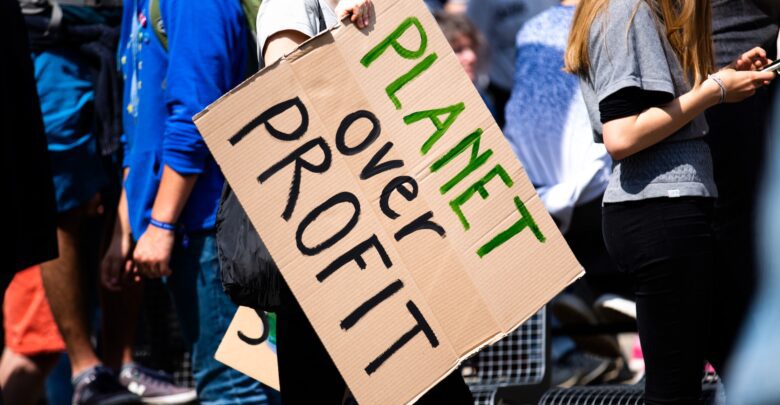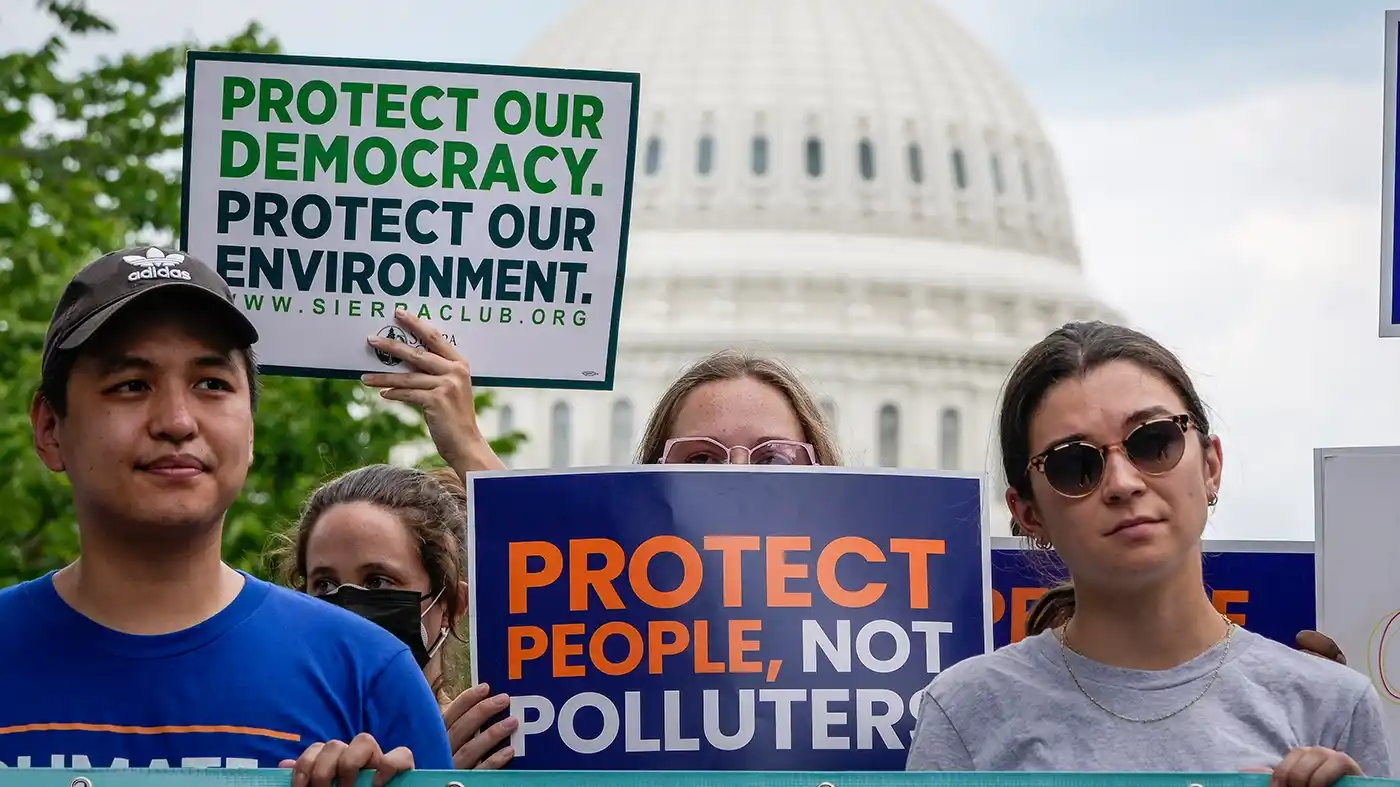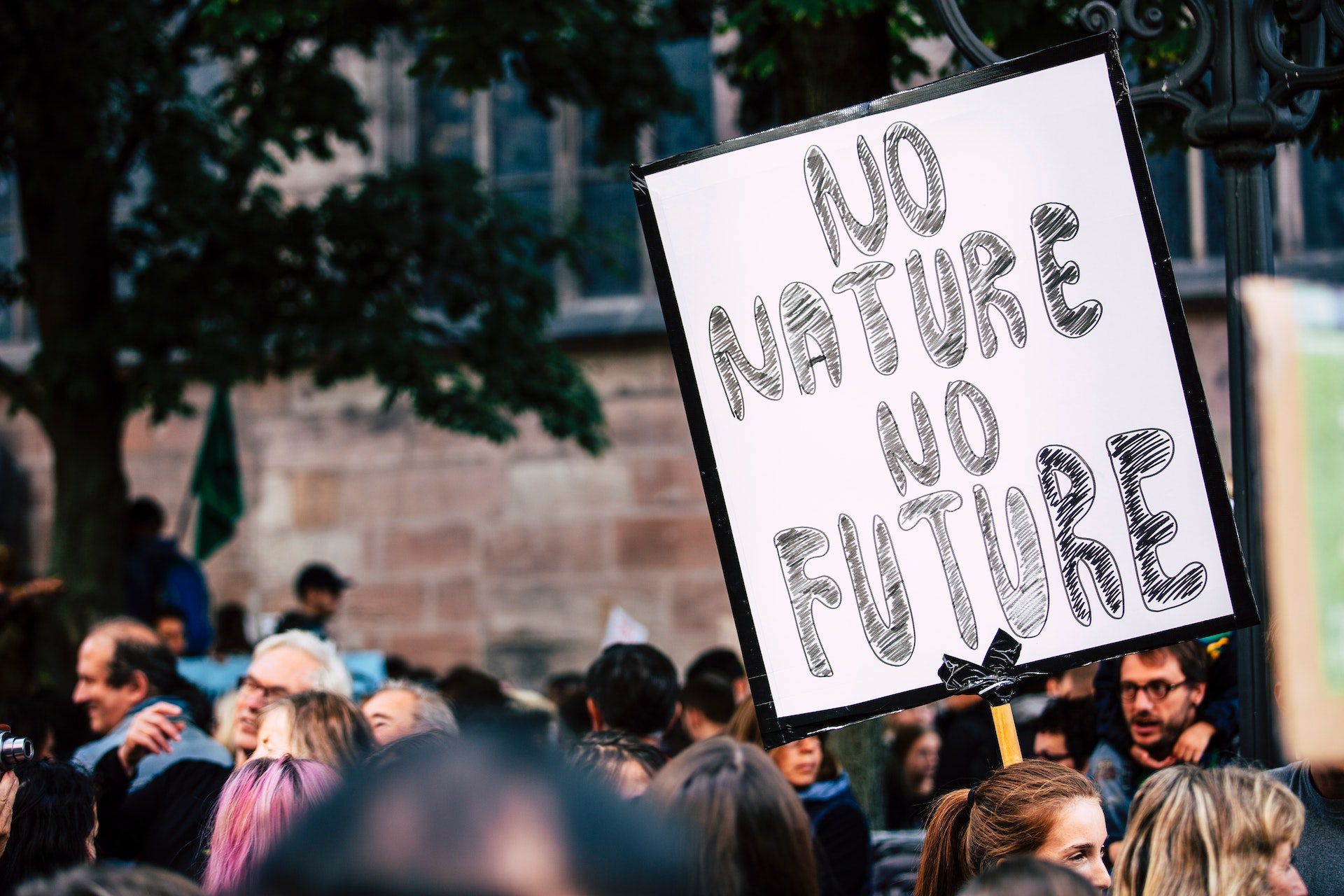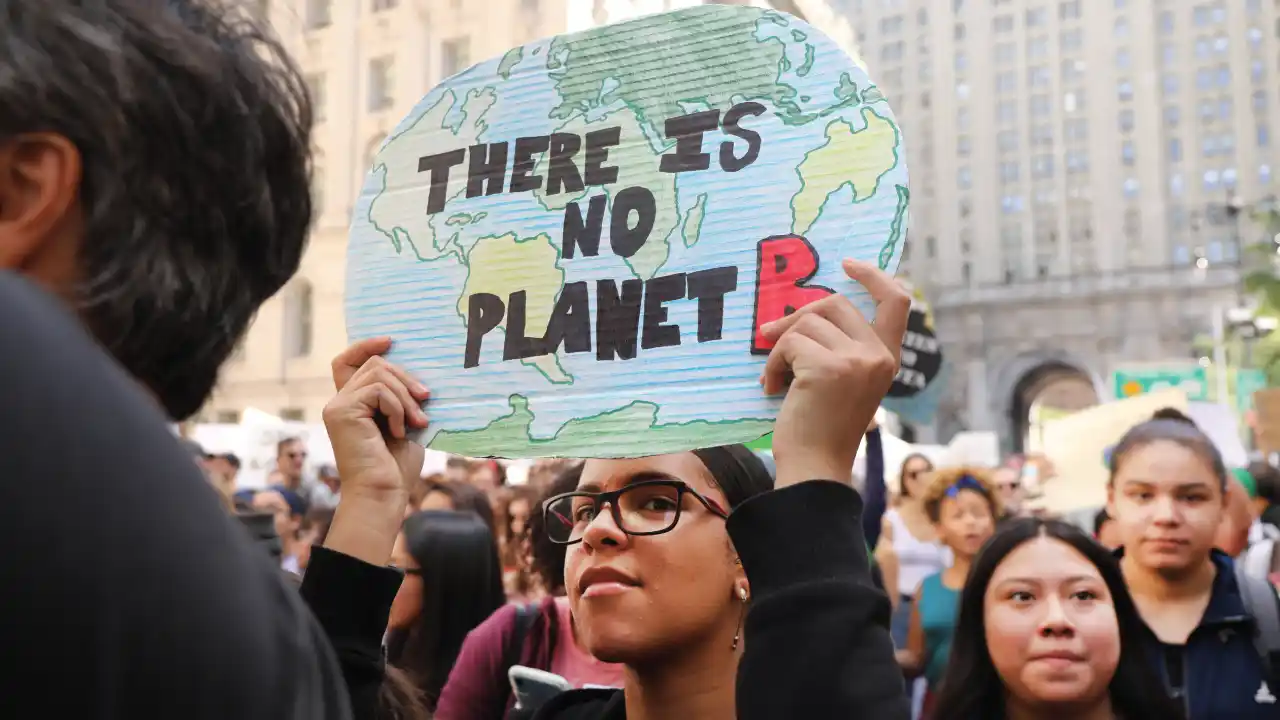Examining the Effective Steps Governments Have Taken to Combat Climate Change

Climate change is an ongoing issue that affects the world’s environment and ecosystems. It is a significant threat to the stability of our planet and our way of life. The issue of climate change is more than just a scientific problem, it is also a political and economic issue. Governments around the world play a crucial role in addressing climate change by implementing policies and taking steps to reduce the impact of human activities on the environment. This article will examine the effective steps governments have taken to combat climate change.
Climate change is the long-term alteration of temperature and typical weather patterns in a place. This change can cause significant impacts on the environment, such as rising sea levels, more frequent and severe weather events, and changes in ecosystems. Climate change is mainly caused by human activities such as burning fossil fuels, deforestation, and industrial processes. These activities release large amounts of greenhouse gases such as carbon dioxide, methane, and nitrous oxide into the atmosphere. These gases trap heat and cause the Earth’s temperature to rise, leading to the phenomenon known as global warming.
Climate change is a global issue, and it requires a global response. However, governments around the world play a crucial role in addressing climate change. They have the power to implement policies and take steps to reduce the impact of human activities on the environment. The following section will examine the role of governments in combating climate change.
The Role of Governments in Combating Climate Change

Governments play a vital role in addressing climate change. They have the power to implement policies and take steps to reduce the impact of human activities on the environment. Governments can provide funding for research and development of renewable energy, set targets for reducing greenhouse gas emissions, and encourage sustainable practices in various sectors.
One of the most important roles of governments is to create policies and regulations that promote sustainable practices. Governments can implement policies such as carbon taxes, which put a price on greenhouse gas emissions. This policy incentivizes individuals and businesses to reduce their emissions by making it more expensive to pollute. In addition, regulations can be implemented to ensure that industries operate in a sustainable manner, reducing the environmental impact of their activities.
Governments also play a significant role in promoting renewable energy. Renewable energy sources such as solar, wind, and hydropower are clean and do not emit greenhouse gases. Governments can provide funding for research and development of renewable energy and offer tax incentives to individuals and businesses that use renewable energy. In addition, governments can set targets for the use of renewable energy and encourage the development of infrastructure to support the use of renewable energy.
Examples of Effective Steps Taken by Governments to Combat Climate Change
Governments around the world have taken various steps to combat climate change. These steps range from investment in renewable energy to the implementation of carbon taxes. The following section will examine some examples of effective steps taken by governments to combat climate change.

Investment in Renewable Energy
Investment in renewable energy is one of the most effective steps governments have taken to combat climate change. Renewable energy sources such as solar, wind, and hydro power are clean and do not emit greenhouse gases. Governments around the world have provided funding for research and development of renewable energy and have set targets for the use of renewable energy.
For example, the European Union has set a target of 32% renewable energy by 2030. In addition, the Chinese government has invested heavily in renewable energy and has become the world’s largest producer of solar energy. The Indian government has set a target of 175 GW of renewable energy by 2022.
Implementation of Carbon Taxes
Carbon taxes are another effective step taken by governments to combat climate change. Carbon taxes put a price on greenhouse gas emissions and incentivize individuals and businesses to reduce their emissions. Governments around the world have implemented carbon taxes to reduce greenhouse gas emissions.
For example, the Swedish government has implemented a carbon tax since 1991. The tax has been effective in reducing emissions, and Sweden has one of the lowest greenhouse gas emissions per capita in the world. In addition, British Columbia in Canada has implemented a carbon tax since 2008, which has been effective in reducing emissions while promoting economic growth.
Promoting Sustainable Transportation

Promoting sustainable transportation is another effective step taken by governments to combat climate change. Transportation is a significant contributor to greenhouse gas emissions. Governments can promote sustainable transportation by investing in public transportation, promoting electric vehicles, and encouraging the use of bicycles.
For example, the Dutch government has invested heavily in cycling infrastructure, and as a result, cycling is a popular mode of transportation in the Netherlands. In addition, the Norwegian government has provided tax incentives for electric vehicles, and as a result, Norway has the highest per capita number of electric vehicles in the world.
Reduction of Waste and Plastic Pollution
The reduction of waste and plastic pollution is another effective step taken by governments to combat climate change. Waste and plastic pollution contribute significantly to environmental degradation and climate change. Governments can reduce waste and plastic pollution by implementing recycling programs, banning single-use plastics, and promoting sustainable consumption.
For example, the Rwandan government has banned single-use plastics since 2008, and as a result, Rwanda is one of the cleanest countries in Africa. In addition, the Japanese government has implemented a recycling program that has been effective in reducing waste and promoting sustainable consumption.
International Agreements and Collaborations
International agreements and collaborations are another effective step taken by governments to combat climate change. Climate change is a global issue, and it requires a global response. Governments around the world can work together to reduce greenhouse gas emissions and promote sustainable practices.
For example, the Paris Agreement is an international agreement that aims to limit global warming to well below 2 degrees Celsius. The agreement was signed by 197 countries, including the United States, China, and India. In addition, the United Nations Framework Convention on Climate Change (UNFCCC) is an international collaboration that aims to reduce greenhouse gas emissions and promote sustainable practices.
Challenges Faced by Governments in Combating Climate Change
Governments face various challenges in combating climate change. These challenges range from political and economic issues to technological and social issues. The following section will examine some of the challenges faced by governments in combating climate change.
Political and Economic Issues

Political and economic issues are significant challenges faced by governments in combating climate change. Climate change policies can be controversial, and governments may face opposition from individuals and businesses who oppose these policies. In addition, climate change policies can have economic impacts, and governments may face challenges in balancing economic growth with environmental sustainability.
Technological and Social Issues
Technological and social issues are also significant challenges faced by governments in combating climate change. The transition to renewable energy and sustainable practices requires significant technological advancements. In addition, sustainable practices require changes in social behavior, such as reducing consumption and promoting sustainable lifestyles. Governments may face challenges in promoting these changes in behavior.
The Future of Government Action on Climate Change
In conclusion, governments play a crucial role in addressing climate change. Governments can provide funding for research and development of renewable energy, set targets for reducing greenhouse gas emissions, and encourage sustainable practices in various sectors. Governments have taken various effective steps to combat climate change, such as investment in renewable energy, implementation of carbon taxes, promotion of sustainable transportation, reduction of waste and plastic pollution, and international agreements and collaborations.
What Can Local Government Do About Climate Change?
Local governments play a crucial role in addressing climate change. While global agreements set broad goals, local governments have the power to implement specific actions and policies that can have a direct impact on reducing greenhouse gas emissions and building climate resilience. Some actions that local governments can take include:
- Implementing renewable energy initiatives: Local governments can invest in renewable energy projects such as solar or wind power and promote the use of clean energy within their communities.
- Improving energy efficiency: Local governments can establish building codes and regulations that promote energy-efficient construction and retrofitting of existing buildings. They can also support energy-saving initiatives in public facilities and infrastructure.
- Promoting sustainable transportation: Local governments can develop and expand public transportation systems, encourage the use of bicycles and walking, and support the adoption of electric vehicles. They can also invest in infrastructure that facilitates sustainable transportation options.
- Enhancing waste management: Local governments can implement recycling and composting programs, promote waste reduction and reuse, and support initiatives to reduce landfill emissions.
- Building climate resilience: Local governments can develop climate adaptation plans, invest in infrastructure that can withstand climate impacts such as flooding or extreme heat, and promote sustainable land and water management practices.
However, governments also face significant challenges in combating climate change, such as political and economic issues and technological and social issues. The future of government action on climate change depends on their ability to address these challenges and promote sustainable practices. Governments must continue to work together to reduce greenhouse gas emissions and promote sustainable practices to ensure a healthy and sustainable future for our planet.
Government Action on Climate Change FAQs
What are the government agreements on climate change?
Government agreements on climate change refer to international treaties and agreements that aim to address the issue of climate change at a global level. One of the most significant agreements is the Paris Agreement, which was adopted in 2015 and has been ratified by nearly all countries. The Paris Agreement sets the goal of limiting global warming to well below 2 degrees Celsius above pre-industrial levels and pursuing efforts to limit the temperature increase to 1.5 degrees Celsius. It also includes provisions for countries to regularly report on their emissions and progress in reducing them.
What is the National Climate Change Action Plan?
The National Climate Change Action Plan is a strategic framework developed by a country's government to guide its efforts in addressing climate change at the national level. The specific details and scope of such plans may vary between countries. Typically, these plans outline the country's goals, strategies, and actions to mitigate greenhouse gas emissions, adapt to the impacts of climate change, and transition to a low-carbon and climate-resilient economy. National Climate Change Action Plans often involve a comprehensive approach that includes policies, regulations, and incentives to promote renewable energy, energy efficiency, sustainable transportation, waste management, and other key sectors. These plans may also include measures to raise public awareness, promote research and development, foster international cooperation, and establish monitoring and reporting systems to track progress.




